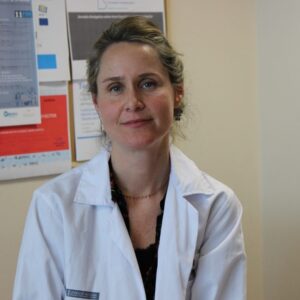
Eva Domínguez Malfeito
Eva Domínguez Malfeito has a degree in Biology from the Universitat de València. In his first steps she directed her professional career towards the field of Scientific Dissemination, completing his training with the “Master in Scientific Communication”, given by the Pompeu Fabra University, in Barcelona. This experience allowed her to carry out various actions in the City of Arts and Sciences of Valencia, developing avant-garde exhibition projects and boosting the work of the scientific animators in the Principe Felipe Science Museum. After 12 years dedicated to the management and transfer of science to society, she decided to reinvent herself and expand his knowledge in the area of clinical research. Therefore, in 2012, she took the “Master in Clinical Trial Development and Monitoring”, at the Catholic University of Valencia. Since then, she has developed her activity in this field. In this new stage, she worked in the Clinical Research Unit of the Research Foundation of the General University Hospital of Valencia, initially providing technical support and later as head of the technical secretariat of the CEIC (Clinical Research Ethics Committee), and she carried out management and administrative tasks and formalization of clinical studies contracts among others. In addition, she worked in FUNDOLOR (Valencia Foundation for the study and treatment of chronic pain), developing research projects aimed at improving the quality of life of patients with chronic pain and collaborated in the implementation and monitoring of clinical studies in the area of anesthesiology. Currently, since 2015, she is coordinator of Clinical Trials, in the Hematology Service of the Universitàri i Politècnic la Fe Hospital, within the multiple myeloma and lymphoma research group. Her activity focuses on the coordination, in the transfer of clinical information as well as in the correct fulfillment of the clinical protocols of new and innovative drugs, in research, aimed at increasing the survival and improving the quality of life of the oncohematological patient.
